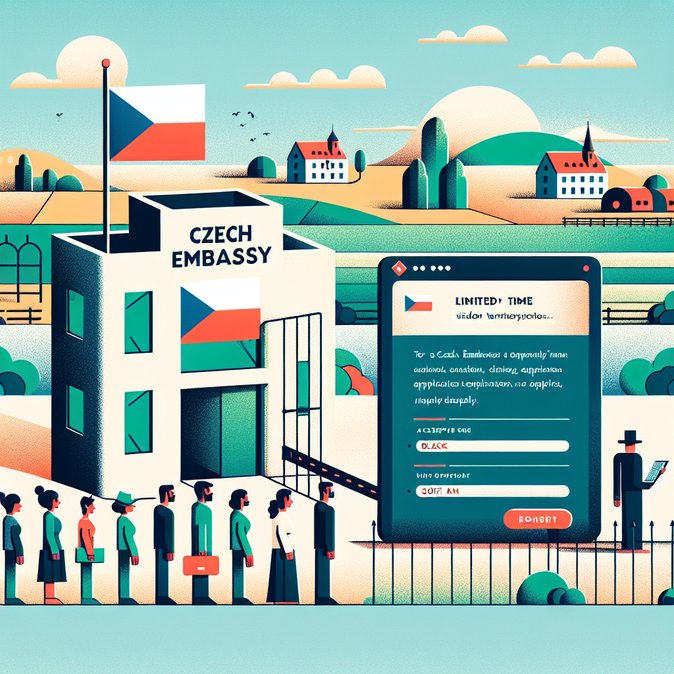
Egyptian job-seekers and Czech agricultural producers were caught off-guard on 25 November when the Czech Embassy in Cairo revealed it had opened online bookings for seasonal-work visas three days earlier—but left the system live for just six hours. The flash window ran from 10:00 to 16:00 local time on 21 November and accepted a maximum of five complete applications—the entire monthly quota for Egypt. Every slot was filled within minutes; most would-be applicants learned of the opening only afterwards via social media.
Seasonal-work visas allow non-EU nationals to live and work in Czechia for up to nine months in agriculture, food processing, hospitality and logistics—sectors facing acute labour shortages before the Christmas peak. Demand from Egypt has soared since Prague stopped accepting most walk-in employee-card filings in July, making the seasonal route one of the few remaining pathways outside government Targeted Economic Migration Programmes.
![Only Six Hours to Apply: Czech Embassy in Cairo Opens Micro-Quota for Seasonal-Work Visas]()
For Czech employers, the episode is a stark reminder of shrinking consular capacity. Many corporate farms and hotel chains depend on Egyptian labour to cover harvests and holiday bookings; several are now considering Romanian or Georgian seasonal schemes as a hedge. Mobility suppliers are advising clients to monitor the embassy’s website hourly and to prepare “click-ready” appointment requests, as cancellation of a slot—even in error—counts as one of two annual booking attempts.
While embassy officials say micro-windows are necessary to “spread limited capacity evenly through the year,” business associations are lobbying Prague to raise the cap to at least 50 files per month or risk crop losses and service disruption during the high season.
Seasonal-work visas allow non-EU nationals to live and work in Czechia for up to nine months in agriculture, food processing, hospitality and logistics—sectors facing acute labour shortages before the Christmas peak. Demand from Egypt has soared since Prague stopped accepting most walk-in employee-card filings in July, making the seasonal route one of the few remaining pathways outside government Targeted Economic Migration Programmes.

For Czech employers, the episode is a stark reminder of shrinking consular capacity. Many corporate farms and hotel chains depend on Egyptian labour to cover harvests and holiday bookings; several are now considering Romanian or Georgian seasonal schemes as a hedge. Mobility suppliers are advising clients to monitor the embassy’s website hourly and to prepare “click-ready” appointment requests, as cancellation of a slot—even in error—counts as one of two annual booking attempts.
While embassy officials say micro-windows are necessary to “spread limited capacity evenly through the year,” business associations are lobbying Prague to raise the cap to at least 50 files per month or risk crop losses and service disruption during the high season.









